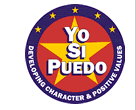Nicaragua to Implement Cuban Literacy Program
- Submitted by: admin
- Central America
- International
- 01 / 28 / 2007

The new Nicaraguan Minister of Education, Miguel de Castilla, said the country will be free of illiteracy by 2012, and to achieve this goal the government will employ the successful Cuban "Yes I Can" learning method, reported AIN.
In a statement to Nicaraguan TV, and posted on the website www.lavozdelsandinismo.com, the minister explained that this will be one of the main battles waged during the 2007-2012 administration of Sandinista leader Daniel Ortega.
De Castilla added that by 2005 the illiteracy rate had reached the 20.5 percent of the 5.14 million population, according to Nicaraguas National Institute of Statistics and Census (INEC in Spanish).
The education minister said the Cuban "Yes I Can" teaching method, which enables people to read in 65 days, was implemented three years ago in some Nicaraguan municipalities. He also recalled that during the previous Sandinista government (1979-1990), the rate of illiteracy in Nicaragua was reduced from 54 percent to 13 percent, but has increased over the past 15 years.
The minister also highlighted the interest of his government in educating all children, though presently every year, despite elementary education being free, some 800,000 children do not attend school.
International organizations are currently organizing food programs for children from low-income families and assisting with the provision of uniforms so that youth will not drop out of school for lack of such materials.
In addition, the minister said a key objective of his administration is to solve the problem of deficient formal education on the part of 50 percent of Nicaraguan teachers. He said that 70 percent of pre-school education teachers, 47 percent of secondary education teachers and 28 percent of elementary schools are not certified and are considered "empirical teachers."
According to De Castilla, these teachers will receive special training with the assistance of teachers from the Faculty of Education of the National Autonomous University of Nicaragua (UNAN in Spanish) and the Normal School (for training teachers), to correct the situation and retain them in the educational system.
Source: Juventud Rebelde
Comments